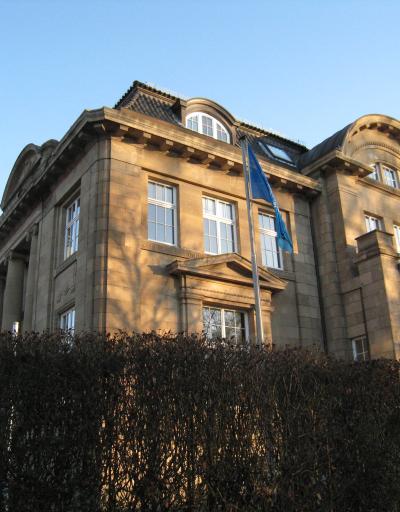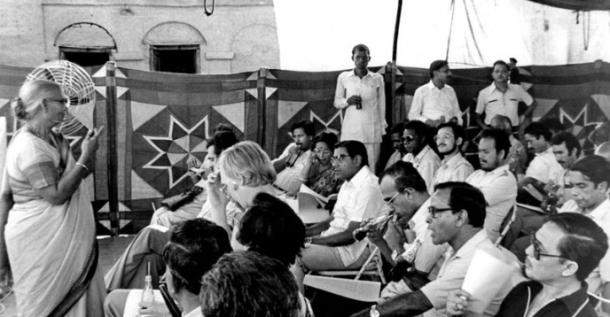

History of the Institute
UIL was founded – as the UNESCO Institute for Education – in 1952 in Hamburg; an expression both of UNESCO’s commitment to post-war Germany and of its aspiration to promote human rights and international understanding through education. During the first meeting of UIL’s Governing Board in June 1951, its members – which included luminaries such as Maria Montessori and Jean Piaget – elected Professor Walther Merck, Chair of Comparative Education at the University of Hamburg, as the Institute’s first director.

Ballin Villa: Now and then
Early years
UIL’s initial focus was on Europe, and its work covered a wide range of topics, from pre-school to adult education, and formal and non-formal learning. However, from the 1960s onwards, the Institute increased its support to developing countries. It was apt, therefore, that in 1978, UIL moved to its current residence, the historic Albert Ballin Villa at Feldbrunnenstrasse 58. A Hamburg native and cruise shipping pioneer, Albert Ballin was a staunch internationalist, who believed in promoting dialogue and understanding as a means of securing peace between nations.
Around the same time, a ground-breaking UNESCO publication, Learning to Be (1972), known as the Faure Report, signalled a new direction for the Institute and for the perception of education in general. The report challenged the notion that education was for the elite or a defined age group only; instead, the authors argued, it should be both universal and lifelong. This vision of lifelong learning, ‘namely that education should extend throughout life, should not only be available to all but be a part of every individual’s life, and should have as its aim both the development of society and the realization of man’s potentialities’, set the course for the Institute’s work today.

Goals for a new millenium
In September 2000, 149 heads of state and high-ranking officials from over 40 countries convened in New York for the Millennium Summit, where they committed to a series of time-bound targets, with a deadline of 2015, known as the Millennium Development Goals (MDGs). These goals ranged from universal primary education to reducing poverty rates and stopping the spread of HIV/AIDS.
As the timeline for the MDGs ended, the United Nations launched a new agenda – the 2030 Agenda for Sustainable Development. With its 17 Sustainable Development Goals (SDGs), the Agenda represents a plan of action for people, planet and prosperity. The Agenda’s ambitions for education are encapsulated in one standalone goal, SDG 4, which enjoins UNESCO Member States to ‘ensure inclusive and equitable quality education and promote lifelong learning opportunities for all’. As the only organization in the UNESCO family with a specific mandate to promote lifelong learning, UIL aims to strengthen the capacities of Member States to reach this target.
UIL is one of seven UNESCO education Institutes. It promotes lifelong learning policy and practice, with a focus on adult education, literacy and non-formal education. It publishes the oldest international journal of comparative education, the International Review of Education – Journal of Lifelong Learning.
Publications


